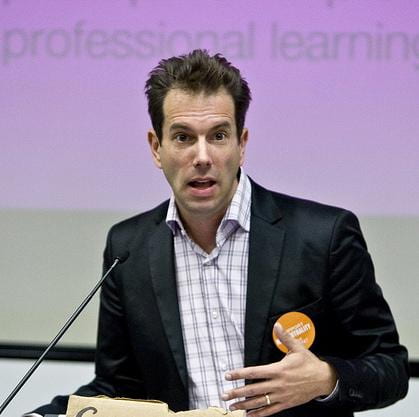
The story that One Health science needs now – Media Ecology
By Marilyn Sheen
Dr. Mark Lipton is a media ecologist. If you’re not sure what this means, think about a petri dish – a closed environment containing a medium, in which a culture grows.
“Media – as in the plural of medium – is an environment in which a culture grows” says Lipton.
Media ecology is the study of changing media environments and the impacts of technological change. This focus applies a holistic approach, to assess the intersecting consequences of any technological change and its impacts on things like culture, humans, and the environment. Lipton uses the example of a fast-evolving piece of technology, like the camera, to illustrate. When a new camera is invented, it catalyzes the development of a new, different culture, because the environment – or medium – in which that culture is growing, has changed.
This is a fundamental axiom that guides Lipton’s research and connects his work to One Health. Lipton says media and communication can be used to weave knowledge and perspectives together – a step that he believes is key to creating constructive change in communities, countries, and globally.
One of Lipton’s current research projects began with a conversation with a neighbour over a fence. The neighbour, Dr. Alexandra “Sandy” Steffen, is the lead Mercury Researcher of the Air Quality Research Division at Environment and Climate Change Canada. As the conversation turned to shared interests, Dr. Steffen asked Lipton if his expertise in education and communication could support her team by helping them reach communities that are affected by environmental contaminants. Despite their success in reaching the scientific and policymaking community, they were struggling to communicate their research to the local communities whose lives were directly impacted by the environmental contamination she was studying.
Lipton agreed. He started trying to increase engagement with the material by changing a one-way, 2-hour lecture into a ‘story’, which included a video and a live Q and A session. Still early in its pilot program, this shorter form of public engagement was part of the team’s outreach with the Aurora Research Institute and other members of Nunavut Arctic College along with organizations like the Hunters and Trappers organization in Iqaluit. The goal is for greater exchange between communities and the ECCC researchers.
Next, Lipton hopes to hire Indigenous specialists to teach scientists about Indigenous ways of knowing, and train Indigenous people in communication and engagement so that the lectures can be facilitated by Indigenous people in the future. Lipton hopes that this will weave Indigenous ways of knowing with the traditional research methods of the scientists to create sustainable solutions to a multifaceted problem.
“We have to meet people where they are and figure out what they are interested in.” Says Lipton.
Lipton says that media is an important focus for One Health at all levels. He believes that it is critical to facilitate more conversations about designing and implementing solutions.
“If we don’t understand our media environment – integrating our disciplines in meaningful ways will be very difficult.”



